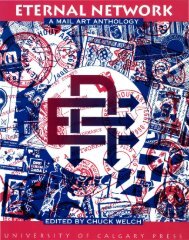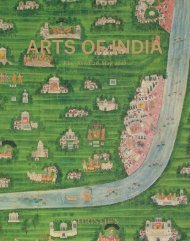1JZGauQ
1JZGauQ
1JZGauQ
You also want an ePaper? Increase the reach of your titles
YUMPU automatically turns print PDFs into web optimized ePapers that Google loves.
5: CASE STUDY 2: THE CZECH/AUSTRIAN BORDER<br />
fortunate position during the negotiations in Moscow and subsequently in<br />
the running of the new Third Czechoslovak Republic (Innes 2001:21).<br />
The fact that the communist groups played an important role in the<br />
resistance movements during the war also seemed to give them a moral<br />
advantage and respect (Shepherd 2000:21). This combined with general<br />
feelings that they had been let down by the West in Munich and the Red<br />
Army’s liberation of the country helped to spread support for communism.<br />
During elections in 1946 the Communist Party won 38 percent of the votes<br />
and became the largest party and with that gained the most important posts<br />
within the government. Edvard Beneš was elected president. Ahead of the<br />
1948 elections, however, the support for the communists appeared to have<br />
fallen and in order not to lose the election the party managed to stage a<br />
coup d’état which resulted in a 90 percent win for the party. Beneš retired<br />
and Klement Gottwald took on the role as president (Lund 1992:17, Leff<br />
1997:49) The Communist Party soon took control of many of the state’s<br />
functions such as the police, security forces and the media. Political opposition<br />
was brutally fought with tens of thousands sent to prison or work<br />
camps during the 1950s. Travel outside the country became strictly<br />
controlled and for many impossible (Shepherd 2000:22–24). Following<br />
Stalin’s death and the condemnation of his politics by Khruschchev at the<br />
Twentieth Congress of the Communist Party of the USSR in 1956 there was<br />
a general thawing of communist policies throughout the Eastern Bloc. This<br />
also happened in Czechoslovakia although at a slightly slower rate than in<br />
other states. 1961 saw the release of thousands of political prisoners and<br />
censorship was somewhat relaxed (Shepherd 2000:24–26). The election of a<br />
Slovak as First Secretary of the Party, Alexander Dubček, in 1968 and the<br />
following line of reform which declared a new political climate of “socialism<br />
with a human face” was presented in April 1968 (Lund 1992:17). The<br />
reforms, referred to as the ‘Prague Spring’, were to include freedom of<br />
media and speech and a move away from planned economy and Stalinism.<br />
But these reforms put strain on the relationship with Soviet and on the 21 st<br />
August 1968 Soviet tanks rolled onto the streets of Prague in an invasion<br />
aimed at reeling the power back in. The so called ‘Normalisation’ that was<br />
imposed on Czechoslovakia forced the reformists out of the party and led to<br />
a more totalitarian system (Shepherd 2000:30–31). This normalisation<br />
which was dominant in the 1970s and 1980s meant a return to the policies<br />
that the 1968 reforms were to change. Many of the people at the party’s top<br />
were forced to resign and given other jobs. Dubček, for example, was given<br />
the job as forest worker in Slovakia (Lund 1992:18). A resistance movement,<br />
137




